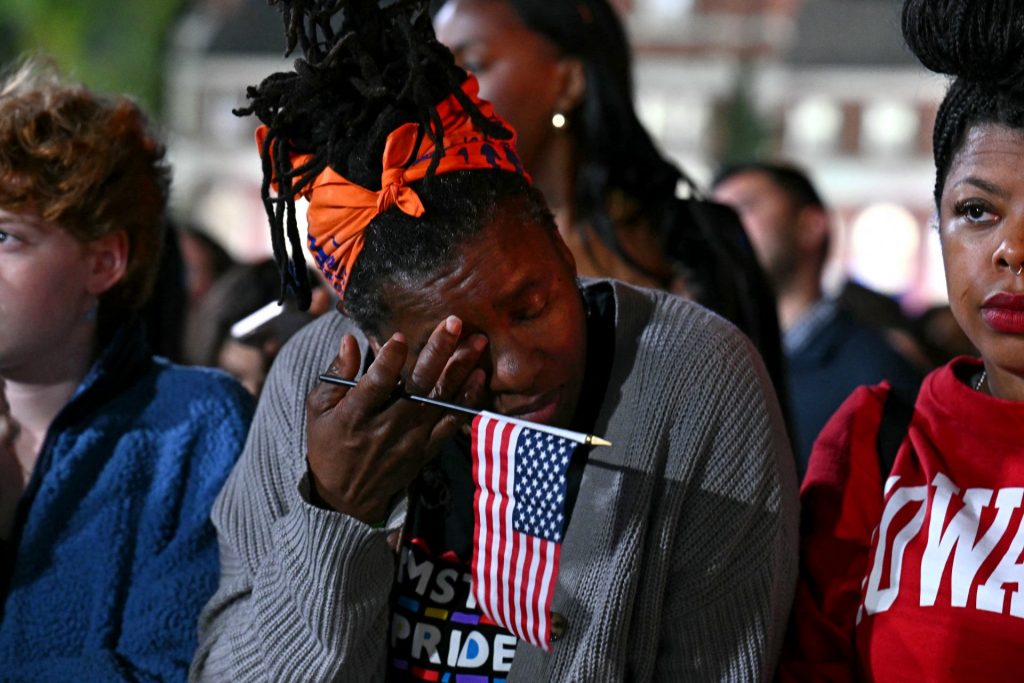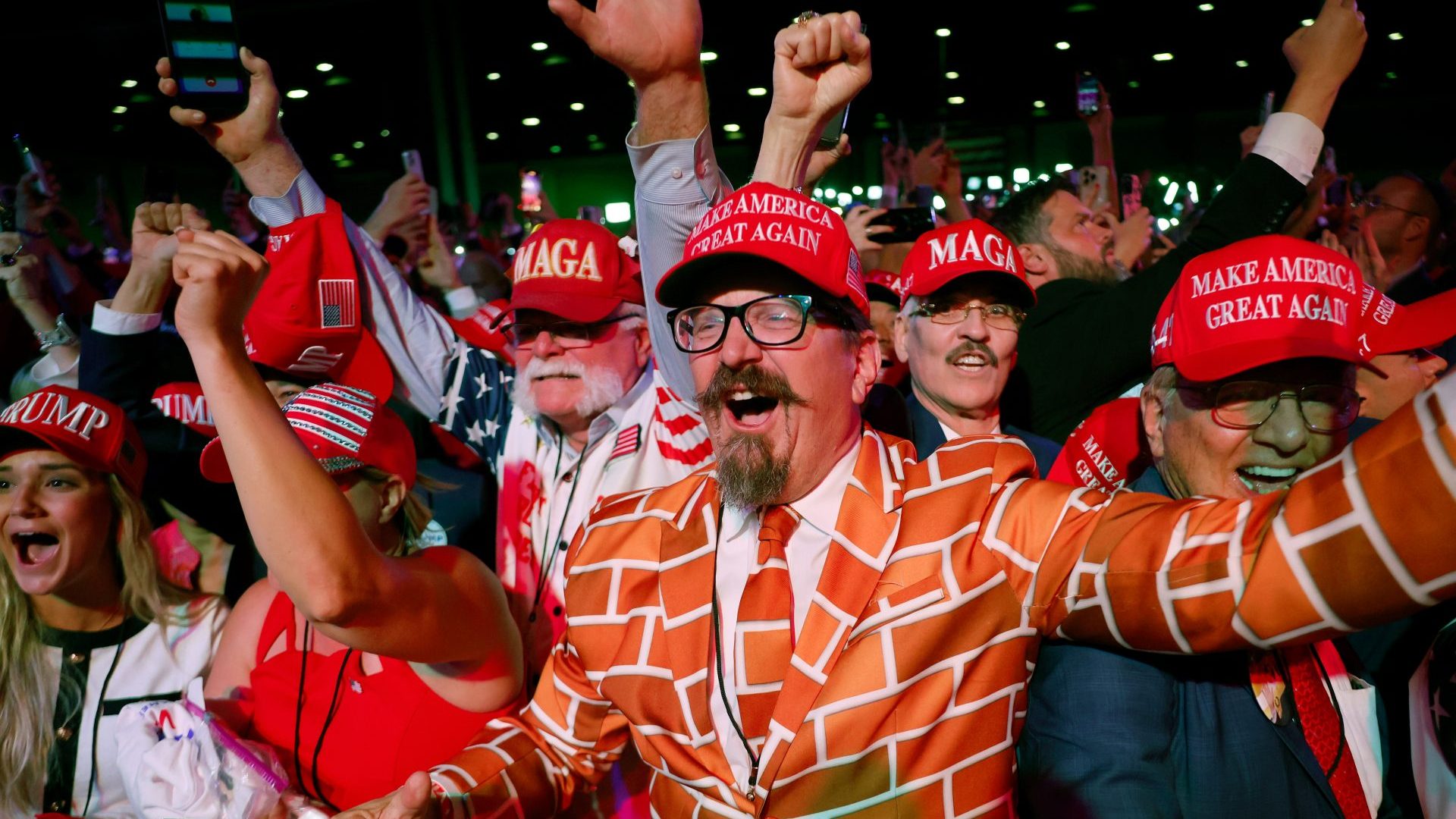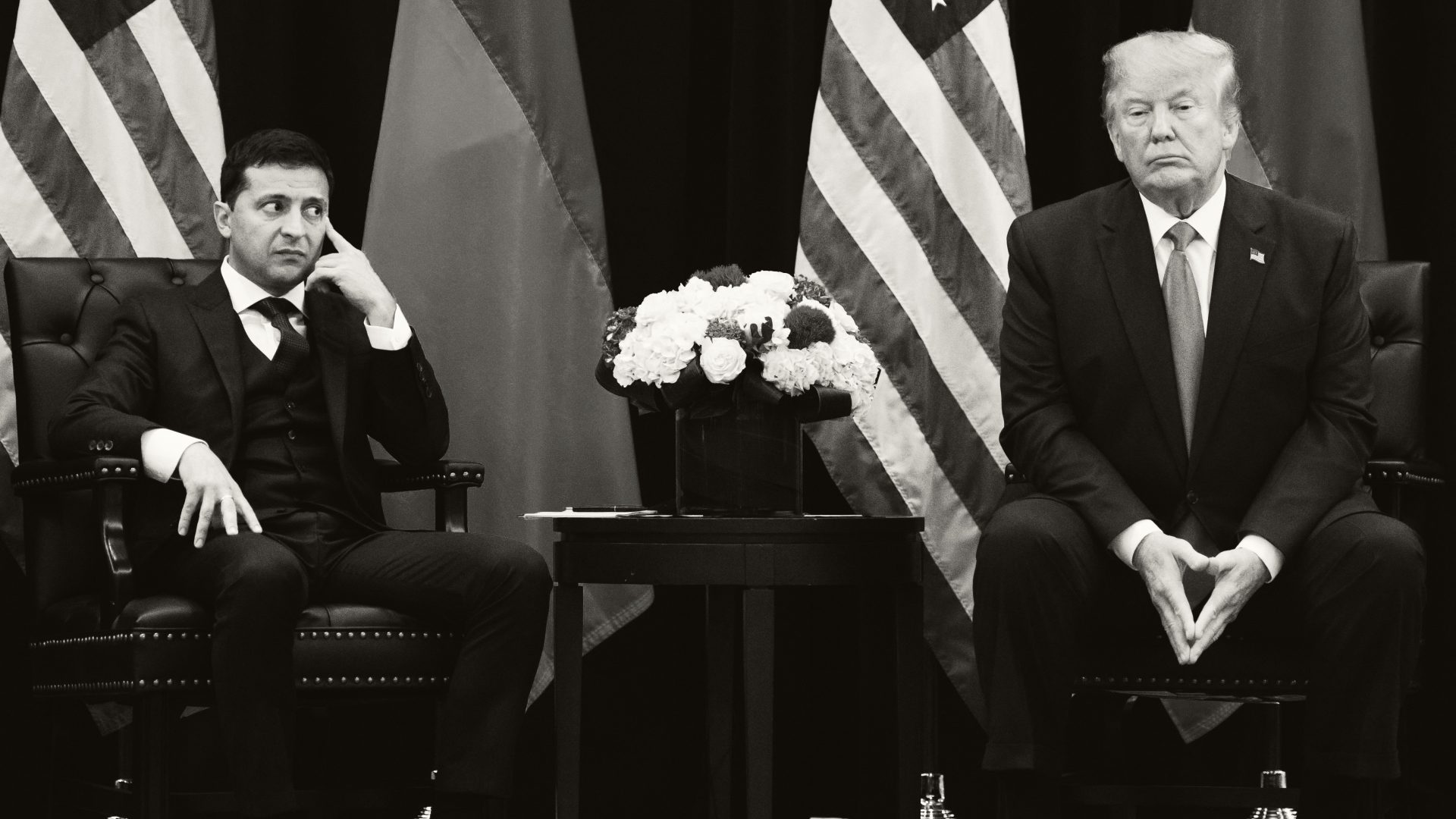I’ve spent the past three weeks travelling across the US, speaking to Democratic and Republican Party operatives, activists, cab drivers, journalists and random Americans. I’ve been to five states and watched as the temperature increased across the country, slowly but surely turning it into a pressure cooker.
I did it because I wanted to understand why the polls were so close when, from afar, it looked like voters had to choose between a home-cooked meal and a rotten sandwich filled with glass. I crossed the Atlantic for the US election because, from where I’d been standing in Britain, it felt as if I was missing something. In the end, I learned a lot.
I sat at the table of a hip restaurant in Charleston, South Carolina, and turned round after a friend poked me in the ribs, discreetly pointing at one of the women who was sharing our table. In her 50s, she’d attached two straws together and was using her contraption to slurp on wine directly from the bottle. Compelled, we decided to speak to her and the seven other women she was with.
Their group, it turned out, comprised four mother-daughter duos. The latter had met at university, the former befriended one another afterwards and, despite now living in all corners of the US, the eight of them met once a year for a big group trip. They were effortlessly jolly, and all from different backgrounds, in different jobs and working in different places.
I had, in all honesty, expected the worst from such a red state, and began feeling guilty about my prejudices. I needn’t have bothered. Towards the end of our now collective meal, our mother of many straws hissed “what’s that bitch doing over there?” “That bitch”, it turned out, was a woman standing outside the restaurant, daring to wear a face mask. The conversation naturally turned to politics after that, and one of them cheerfully said “oh we’re all Trump voters here!”
The revelation came as such a shock that it didn’t even occur to me to ask them why that was. I did, however, quiz another of our dinner guests later, a friend of a friend. An estate agent by trade, he told me that he was pro-abortion and felt that gun laws were too lax but, hey, he just wants lower taxes. Again, I struggled to follow up. It was like listening to a fox explain that those merry chaps on horses sure do look dashing running across the fields.
It was also a scene that ended up repeating itself, again and again, across several places. We in Europe like to think of Trump voters as rabid, racist, or both, but many of them are, at least outwardly, entirely normal. They’re of all classes and gender, ages and ethnicities. Many of them aren’t even especially radical. Most of the ones I spoke to argued that “the economy” was the main reason why they wanted the Democrats out of power.
It often felt like inhabiting a pocket universe, where the Republican nominee wasn’t a sex pest and a felon; a fraud and a fascist. I talked about it with Sam Skardon, a Democratic organiser in Charleston. “There is a legacy of people who were raised with a small government, low taxes Republican Party, and therefore they’re still Republicans,” he told me, “but nothing about Donald Trump is small government.”
Really, you only have to ask women or transgender people. A government seeking to find out what goes on in people’s underwear and around their cervix is, by definition, all-encompassing. The Trump campaign didn’t even seek to hide its authoritarian overreach during the campaign.
An ad that played more than once during a college football game I watched later that day boasted that “Kamala is for they/them, Donald Trump is for you”. It sounded like the ramblings of someone in the process of having a stroke but, depressingly, it may well have been working.
“It drives me crazy,” Skardon said. “Seriously, you have no idea how many people are fired up about transgender children playing sports. There’s literally a yard sign by my house that says ‘Save Girls Sports, Vote Trump’.”
The frustration in his voice became even more palpable later that morning, when I watched him engage with an undecided voter who had walked up to him. “I really can’t stand Donald Trump, and I can’t stand Kamala Harris either,” the man told him. “What’s your pitch?”
Skardon spoke of helping the middle classes, building better infrastructure, fighting climate change and having values you can trust. The other guy sounded unconvinced, and mostly wanted to talk about the shop he runs, and the extent to which the minimum wage has risen over the past few years. The people he’s hiring for all that cash aren’t even any good, he complained. Oh, and there was that other concern.

Photos: Chip Somodevilla/Getty
“The one thing that does bother me is the immigration thing,” he said. “They haven’t infiltrated here yet. I’ve got a lot of friends who live in Colorado, a lot in the textile industry who live in Texas, and they say they’re overrun.”
Skardon managed not to sigh. “It’s interesting you mentioned the cost of labour earlier,” he said instead. “There are two ways to add to your labour force. You can have more babies – it takes 18 years – or you can have more immigrants. You want more workers? That’s where they come from.” The man paused for a while, then conceded that it was “a valid point”. Before leaving, he said that he was thankful for the chat, and would take a closer look at his ballot.
It was a victory of sorts, but quite an unremarkable vignette. America is divided in more ways than one. Sure, there are die-hard Republicans and die-hard Democrats, and they no longer share a common reality. That doesn’t mean they are alone. Among them live millions of Americans who, frankly, struggle to care either way.
I spoke to Americans who disliked both Trump and Harris equally, as the shop owner did, and who had no strong feelings on any of it. Others were put off by the hyper-partisanship, and actively chose to tune out. These are the people who are rarely featured in the news because shoulder shrugs don’t make for good headlines. But looking at Trump then at Harris and deciding that none of it is worth the hassle is, in and of itself, a sign of radicalisation.
It’s a sign that some people will never make the link between what happens in politics and what happens in their day-to-day lives, and a sign that others just do not care about what may happen to their colleagues, neighbours and loved ones. It shows that, provided that it shifts slowly enough, the Overton window can make people passively roll their eyes at the unacceptable.
This US election was an earthquake that will keep reverberating across the world for some time but, in many ways, it shouldn’t have been a surprise. Countless newspaper column inches will soon be filled with analysis of the Harris campaign, its missteps and flaws, but it isn’t clear that any of it truly mattered. Many Americans were already too far gone long before the campaign had even begun.
It’s the realisation I came to while queuing for Trump’s Madison Square Garden rally. I was standing in a crowd of MAGA supporters and one of them said he was “ashamed to be a lawyer in New York state”, the place that “fabricated” so many charges against Trump. Another talked about the fact that Harris, the former prosecutor and vice-president, was simply too unqualified to run the country.
These aren’t people a traditional political party can appeal to with catchy slogans, or policies aimed at making their day-to-day lives better. Many of them may have, once upon a time, been swing voters, but they have now gone off the deep end. The “news” they read, if you can bear to use the word, bears little resemblance to reality. There is an information ecosystem out there, built on layers of conspiracy theories, and it is showing no sign of going away.
The people consuming them also increasingly live in their own physical bubbles; as several operatives in both Carolinas told me, thousands of conservatives have flocked to the already conservative areas of their states. Liberals and progressives, meanwhile, keep moving to the bigger cities, all of which are blue or, at worst, purple-tinged. If you liked online echo chambers, you’ll love their flesh and blood counterparts even more.
I learned one great, big thing on this trip. We Europeans trick ourselves into thinking that we understand Americans, because we read their books and watch their films and their television and we drink their sodas and eat their fast food. We’re more aware of them than they will ever be of us and it makes us think that, with a bit of effort, we could get under their skins.
It’s what I tried to do for weeks, and I never quite got there. I can prod them and I can gawp and observe, but Americans remain a mystery to me. I don’t understand Trump and I don’t think you do either, but that’s because we, or at least I, do not – cannot – understand the United States. I’d thought, naively, that inserting myself into the thick of it would make me feel less powerless. It didn’t.
As it turns out, all we can do is stand and watch as these odd, confusing, compelling strangers decide to alter the future of the planet we share with them, for better or for worse. This time they changed it for the worse, and the rest of us will now have to pick up the pieces. Again. What a world.




